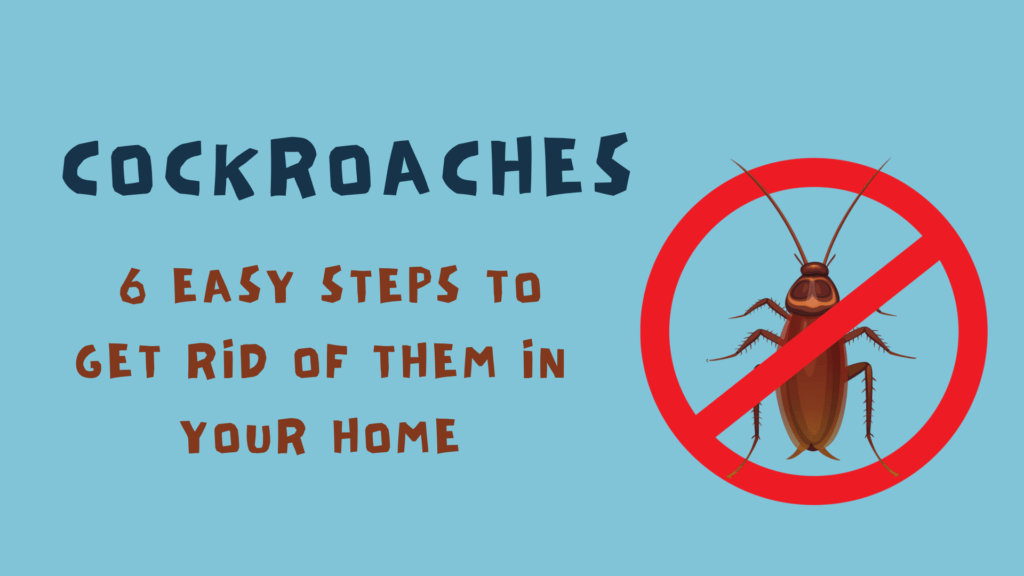
Cockroaches are one of the most unwanted pests in any home. They are not only creepy to look at but can also spread germs and cause allergies. If you have a cockroach problem, don’t worry—there are simple ways to get rid of them and stop them from returning.
Why Are Cockroaches in My Home?
Cockroaches come into homes looking for food, water, and a place to hide—things that your home easily offers. They are most active at night and like to hide in dark, damp places like kitchens, bathrooms, basements, and behind appliances.
Why Cockroaches Are So Hard to Kill
Before we get into the solutions, it helps to understand what you’re dealing with. Cockroaches are:
Fast breeders – A single female can produce hundreds of offspring.
Excellent hiders – They squeeze into tiny cracks and only come out at night.
Tough survivors – They can go without food for a month and survive in harsh conditions.
That’s why a single spray won’t solve the problem. You need a complete approach.
Also read:
Termite Droppings: The Warning Sign You Should Never Ignore
Powderpost Beetles: How to Spot the Damage Early!
Signs of a Cockroach Infestation
Live or dead cockroaches: Spotting even a single cockroach can indicate a larger problem.
Droppings: Small, dark specks that resemble coffee grounds or black pepper.
Egg cases (oothecae): Oval-shaped capsules found in hidden areas.
Musty odor: A strong, unpleasant smell in areas where cockroaches are present.
Step 1: Identify the Problem Areas
Start by locating where the cockroaches are hiding. Common hotspots include:
- Behind the refrigerator or stove
- Under the sink
- Inside kitchen cabinets or drawers
- Bathroom drains
- Utility closets or basements
Look for signs like:
- Droppings (small black specks)
- Egg casings (oval, brown capsules)
- Musty odor
- Live or dead roaches
Step 2: Cut Off Their Food and Water
The most important thing cockroaches need to survive is food and moisture. To stop them, do these things right away:
- Clean up crumbs and spills immediately
- Store food in airtight containers
- Take out the trash every day
- Fix any leaking pipes or faucets
- Don’t leave dirty dishes overnight
- Keep pet food sealed and off the floor
By doing this, you make it harder for cockroaches to find food, and they will end up walking into your traps.
Step 3: Use Effective Roach Killers
Now that you’ve disrupted their food source, it’s time to strike. These are the most effective options:
🔹 1. Gel Baits (Highly Effective)
Apply gel bait in cracks, corners, and behind appliances. Roaches eat the poison and bring it back to the nest, killing others too.
Top Tip: Don’t clean up dead roaches right away. Others feed on their bodies and also get poisoned.
🔹 2. Roach Bait Stations
These enclosed traps attract roaches and poison them safely. Place them in high-traffic areas like under the sink, behind the toilet, and near trash bins.
🔹 3. Boric Acid Powder
A natural but deadly substance for roaches. Sprinkle lightly in hidden areas like under appliances or along baseboards. Roaches walk through it, ingest it, and die.
Warning: Keep boric acid away from pets and kids.
🔹 4. Insect Growth Regulators (IGRs)
IGRs prevent roaches from maturing or reproducing. Use them alongside baits for a long-term kill strategy.
Step 4: Use Natural Remedies (Optional But Helpful)
Want to avoid harsh chemicals? Try these natural roach control methods:
Diatomaceous Earth (Food-Grade): A powder that dehydrates roaches on contact.
Baking Soda + Sugar: Mix equal parts as bait. The sugar attracts them, and the baking soda kills them.
Essential Oils (Like Peppermint or Eucalyptus): Use diluted sprays as repellents.
While not as potent as chemical methods, these can help in combination with other treatments.
Step 5: Seal Entry Points
Cockroaches can fit through cracks as thin as a credit card. To stop new ones from getting in, do the following:
- Seal gaps around doors, windows, and baseboards
- Use caulk to fill cracks in walls and cabinets
- Install door sweeps and window screens
Step 6: Keep Your Home Roach-Free
Once you’ve removed the cockroaches, keep them away by:
- Vacuuming regularly
- Deep-cleaning the kitchen once a month
- Covering drains at night
- Using bait stations occasionally to prevent new ones
- Scheduling pest control treatments every few months (if needed)
When to Call a Pest Control Professional
If you’ve tried everything and still see roaches, or if the infestation is large, it’s time to call in experts. Professionals use commercial-grade baiting and barrier treatments to eliminate even the toughest infestations.
Also read:
Top 5 Best Grass and Weed Killer
Wasp vs Hornet: Which Is More Dangerous? The Answer Will Surprise You!
Cockroach Control: Frequently Asked Questions
1. What attracts cockroaches to my home in the first place?
A: Cockroaches are attracted by food remnants, moisture, warmth, and hiding spots. They thrive in environments where these resources are easy to find.
2. How long does it take to completely eliminate a cockroach infestation?
A: The timeline varies depending on the size of the infestation and the methods used. Typically, noticeable results can be seen within a few weeks, but complete eradication may take a month or more with consistent effort.
3. Are there any home remedies that really work against cockroaches?
A: Some home remedies, such as baking soda and sugar mixtures or essential oil sprays, may help deter cockroaches, but they are generally less effective than commercial baits or professional treatments for larger infestations.
4. Can cockroaches survive without food and water?
A: Cockroaches can survive for weeks without food but only a few days without water, which is why eliminating water sources is crucial for control.
5. What health risks do cockroaches pose?
A: Cockroaches can spread bacteria, contaminate food, and trigger asthma and allergies in sensitive individuals due to their droppings and shed skins.
6. Is it possible for cockroaches to become resistant to insecticides?
A: Yes, some cockroach populations have developed resistance to certain insecticides over time, which is why integrated pest management—combining sanitation, exclusion, and chemical treatments—is recommended.
7. Should I be concerned about baby cockroaches (nymphs)?
A: Yes, seeing nymphs usually means there is an established breeding population nearby, and prompt action is needed to prevent the infestation from growing.
8. How can I make my home less attractive to cockroaches?
A: Regularly cleaning, fixing leaks, storing food in airtight containers, and sealing cracks and crevices can make your home less inviting to cockroaches.
9. What should I do if I keep seeing cockroaches after trying home treatments?
A: If home treatments are not effective, it’s best to contact a licensed pest control professional who can assess the situation and use more advanced methods.
10. Are there certain times of year when cockroaches are more active?
A: Cockroaches are active year-round but may be more visible during warmer months or if they seek shelter indoors due to extreme weather conditions.

